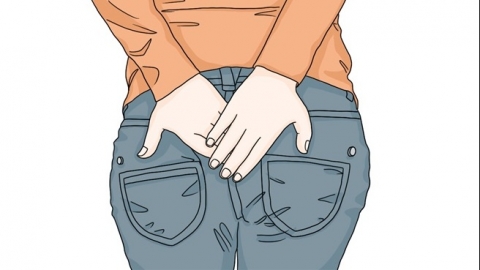Is a small fleshy lump in the anus a hemorrhoid?
Generally speaking, whether a small fleshy lump around the anus is hemorrhoids needs to be determined based on specific symptoms and examination results. If discomfort occurs, timely medical consultation is recommended. Detailed analysis is as follows:

If the small lump is accompanied by pain or bleeding during bowel movements, or if the lump can retract on its own after defecation, and symptoms worsen with prolonged sitting or constipation, it is most likely hemorrhoids. This condition is often caused by varicose veins forming clumps around the anus, which can be triggered by prolonged sitting, spicy foods, and other factors.
If the lump feels hard, accompanied by persistent itching, increased discharge, or significant pain upon touch without bleeding during bowel movements, it may not be hemorrhoids but could indicate perianal abscess, genital warts, or prolapsed rectal polyps. These conditions differ from hemorrhoids in terms of pathogenesis and also exhibit distinct symptom presentations.
Once a lump is noticed, avoid squeezing or scratching it forcefully to prevent injury and infection. Maintain cleanliness and dryness in the anal area, consume more fruits and vegetables, drink plenty of water, and avoid constipation and prolonged sitting. If symptoms persist for more than one week or if pain intensifies and bleeding increases, seek medical evaluation promptly to determine the exact cause before initiating targeted treatment. Self-medication should be avoided.






